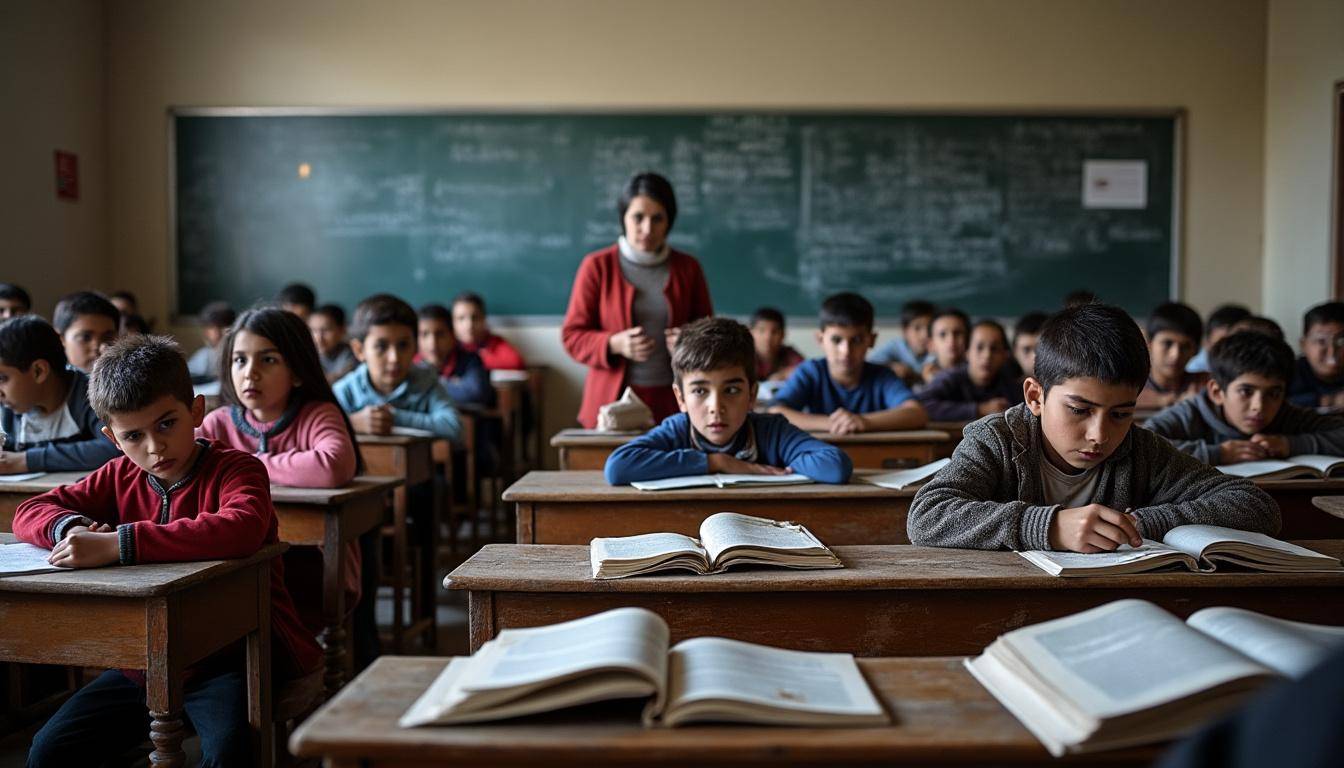The ongoing Lebanon Crisis continues to impact the educational opportunities of thousands of children, particularly Syrian refugees. Despite commitments from the Lebanese government to improve access to education, restrictive policies have increasingly put Educational Barriers in place. This article explores how these measures affect Refugee Education and highlight the critical need for equitable Access to School for all children in Lebanon in 2025.
Educational Barriers Facing Syrian Refugees in Lebanon’s School System
Since early 2025, the new Lebanese government under Prime Minister Nawaf Salam and Education Minister Rima Karami has publicly prioritized quality education for every child in Lebanon. They vowed to rehabilitate the Lebanese public school system and expand learning opportunities. Despite these intentions, a key policy implemented on September 30 restricts many refugee children’s enrollment by requiring valid residency permits or UNHCR Lebanon documentation for second-shift public school registration. This mandates disproportionately affect Syrian refugee children and exacerbate discrimination in education.
- At least 28,000 non-Lebanese children were barred from public schools last academic year due to residency documentation requirements, according to UNICEF.
- Only about 20% of Syrian refugees hold valid residency permits amid costly renewal processes and bureaucratic obstacles since 2015.
- Most Palestinian refugee children attend schools run by UNRWA rather than public institutions, limiting access points to formal education for this group.
- UNHCR Lebanon reported that as of late 2025, only 815,000 out of 1.5 million Syrian refugees in Lebanon are officially registered.
- In 2024, 41% of Syrian refugee children missed primary school and 81% did not attend secondary school, highlighting severe educational exclusion.
These barriers contradict the UN Convention on the Rights of the Child, which guarantees education regardless of immigration status. The effects of these policies reverberate not only socially but economically, limiting future skilled workforce development in Lebanon as explored in broader education workforce discussions.
Impact of Discrimination in Education and Humanitarian Aid Challenges
The restricted Access to School imposed by residency laws fuels discrimination in education, positioning refugee children as second-class learners. The situation complicates efforts by humanitarian agencies, including UNHCR and UNICEF, as they strive to provide complementary non-formal education programs and psychosocial support in informal settings. With many children effectively excluded from the public school system, non-formal education becomes a critical lifeline.
- Non-formal education programs help bridge gaps where formal schooling is inaccessible but lack standardized accreditation.
- Psychosocial services address trauma experienced by displaced children, promoting better educational engagement.
- Humanitarian aid funding limitations further restrict outreach and sustainability of educational support.
- Local communities and NGOs are vital in supplementing education but face challenges due to resource constraints.
This emphasizes the importance of advocacy for increased humanitarian aid and better policy coordination to reduce educational exclusion and uphold child rights through funded interventions.
Looking Ahead: The Role of Policy Reform and National Commitment to Child Rights
While the Lebanese government’s recent statements stress that “children of Lebanon, regardless of origin or circumstance, must never be deprived of their right to learn,” persistent policies paint a different reality. To truly advance Refugee Education and ease barriers to Access to School, urgent reforms are needed to:
- Eliminate the residency permit requirement for refugee children attending Lebanese public schools.
- Strengthen collaboration with UNHCR Lebanon to streamline refugee registration and documentation.
- Scale up funding and capacity for non-formal education to complement formal school offerings.
- Implement emergency education continuity plans during crises, as recently experienced by Lebanon with geopolitical instability.
- Promote national dialogue emphasizing education as a right and lever for Lebanon’s revitalization.
These reforms align with global efforts to widen education access for vulnerable children and ensure they do not become a lost generation in the face of humanitarian crises. They also support Lebanon’s ambitions to improve public education and leverage education as a foundation for social rebuilding amid funding challenges.


